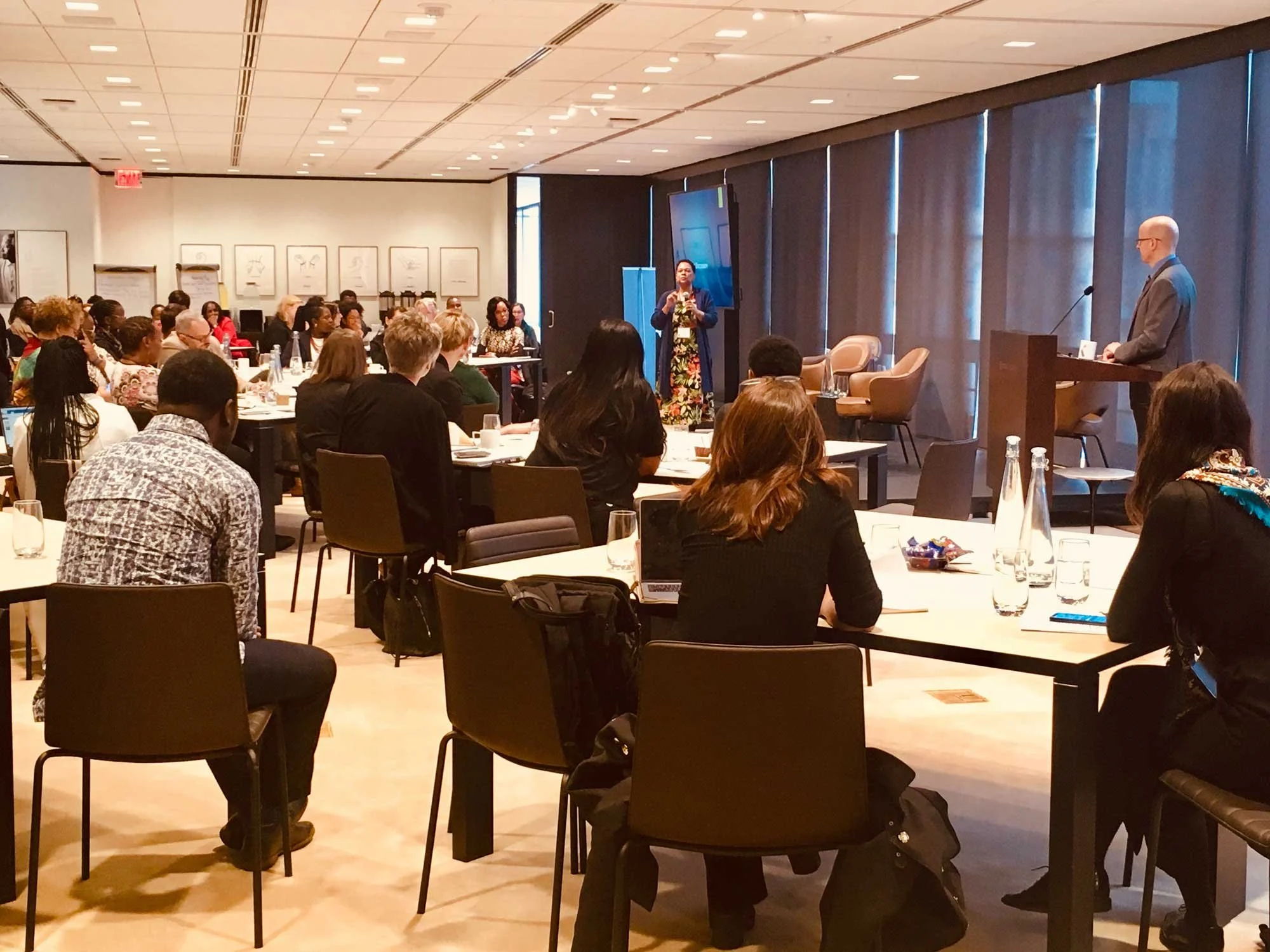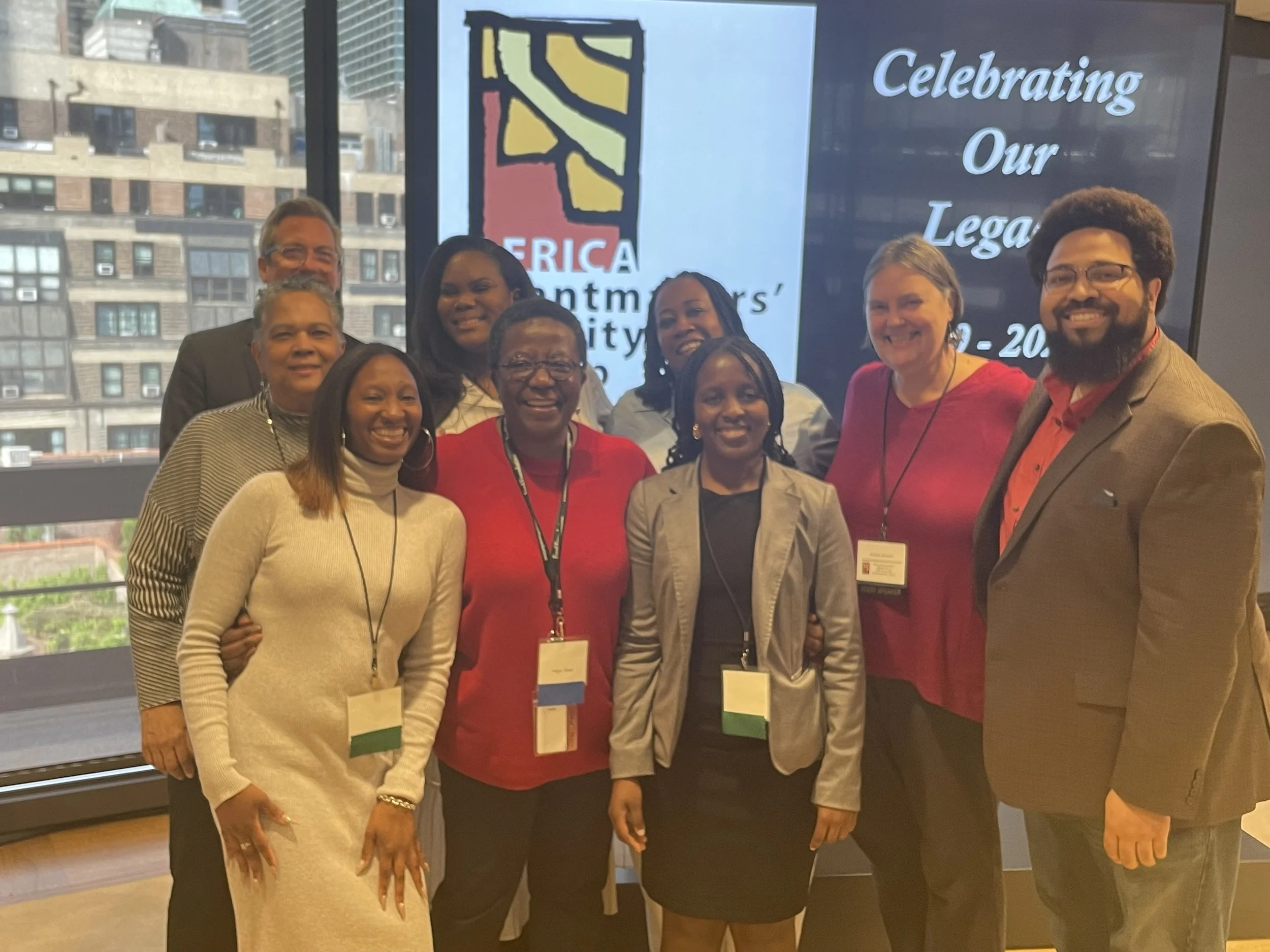Our sunset is an ending and an invitation
After almost 25 years, the Africa Grantmakers’ Affinity Group (AGAG) is concluding its work, and I wanted to say thank you to all those who have been a part of our journey for their involvement and support.
AGAG was born out of a need: for connection, candor, and community among those funding in Africa. We came together across sectors and geographies to ask questions, challenge narratives, and share what we were learning — honestly and without ego. What started as a network became a professional home. Together, we demonstrated how philanthropy can do better and work in a more equitable and respectful partnership with African communities.
As AGAG sunsets, this isn’t just an ending. It’s an invitation.
We’ve made this transition intentionally, knowing that philanthropic landscapes across the globe have changed. There is more diversity in philanthropy and more opportunities for funders inside and outside of Africa to connect and partner with each other. There is an emerging generation ready to lead with clarity and courage in the current philanthropic environment. AGAG’s exit makes space for new initiatives and we pass the baton off with our lessons in hand.
We leave the AGAG Legacy Project as our contribution to the philanthropy sector. This curated digital archive of our work ensures the resources that have defined AGAG’s work remain accessible to future generations of grantmaking practitioners. We developed the AGAG Legacy Toolkit, a study and action guide, designed for funders, learning groups, and teams to explore the questions and issues that are critical to their work as practitioners. The Toolkit includes summaries and discussion questions for the "Story of AGAG" podcast series, reflection prompts on power and equity, and actions you can take to apply AGAG’s practices.
Whether you’re new to funding in Africa or looking to deepen your work, the Toolkit can promote learning, team dialogue, and strategy development grounded in intentionality, accountability, and intellectual honesty. You can continue to engage with AGAG’s legacy through the following resources:
• AGAG Legacy Project YouTube Channel: Listen to the “Story of AGAG” and “Conversations With” podcast series.
• AGAG Legacy Project Link Tree: Links to download our publications including the Toolkit
• Download the AGAG Legacy Toolkit
We have donated our archives to the Philanthropic Studies Archives at the Ruth Lilly Special Collections and Archives at Indiana University, Indianapolis. Indiana University of Indianapolis.
Please note this website will remain live until August 31, 2025.
Our legacy is not only the publications we produced or the annual convenings we held; it is the relationships that were created, the shifts in mindset, and the narratives we challenged by asking the questions we dared to pose. We demonstrated that philanthropy’s resources make a difference when they are grounded in human relationships and not just transactional practices. AGAG created a space for honest reflection and challenged ourselves to do better by not only changing the narratives but also changing the practices.
Thank you to the people who helped shape AGAG's evolution and supported our efforts to build an intellectual and political home that modeled equity, respect, and intellectual honesty.
A special thanks to our founding steering committee members, Andrea Johnson, William "Bill" Moses, and Nancy Muirhead, who stewarded AGAG's early days, and our current steering committee members Nyeleti Honwana, Yvonne Moore, and Vuyiswa Sidzumo, who stewarded AGAG through the conclusion of our work.
It has been a privilege to be part of this community. Thank you for your involvement and support. We know the work will continue. If you want to be in touch you can find me on Linkedin.
With appreciation,
Niamani Mutima
Executive Director
Africa Grantmakers’ Affinity Group
The AGAG Legacy Project: Honoring the Past,
Informing the Future
For 25 years, Africa Grantmakers’ Affinity Group (AGAG) has been a professional community and intellectual home for funders mobilizing resources to benefit African communities—a space where grantmaking practitioners exchanged ideas, built relationships, and challenged assumptions about American philanthropy’s role on the African continent. AGAG has operated as a fiscally sponsored project of Tides. AGAG will cease operation on June 30, 2025.
We created the AGAG Legacy Project to ensure that our knowledge, research, and conversations remain accessible to guide future generations of grantmaking professionals funding in Africa. The AGAG Legacy Project “Story of AGAG” and “Conversations With” podcast series are now available on the AGAG Legacy Project YouTube Channel. Our publications are available at the AGAG Legacy Project Link Tree.
This website will be active until September 30, 2025.
A Legacy of Learning
The AGAG Legacy Project is a digital archive that preserves the resources that have defined AGAG’s work. The Story of AGAG documentary podcast series captures firsthand insights in the following ways:
The Creating Community Podcast highlights how AGAG fostered connections between a diverse community of grantmaking practitioners that shaped how they approached their work and improved grantmaking practices.
The Challenging Narratives and Practices Podcast explores how AGAG created a forum that challenged practitioners to examine their assumptions, rethink narratives that shaped their grantmaking strategies, and support African-led and headquartered initiatives.
In addition, the report, Conversations with Africa Grantmakers, offers in-depth insights into how grantmakers navigate their roles, build collaborative relationships, and understand change, providing useful perspectives for both new and experienced practitioners.
“AGAG connected me with individuals and organizations working in the same space I might not otherwise met. It was a unique opportunity to make new connections and speak frankly about the opportunities and challenges of funding in Africa.”
BUILDING A NETWORK
AGAG has been shaped and sustained by the people who have been part of its evolution… they have demonstrated the positive influence that can happen when colleagues come together in an inclusive, learning, and welcoming space.












